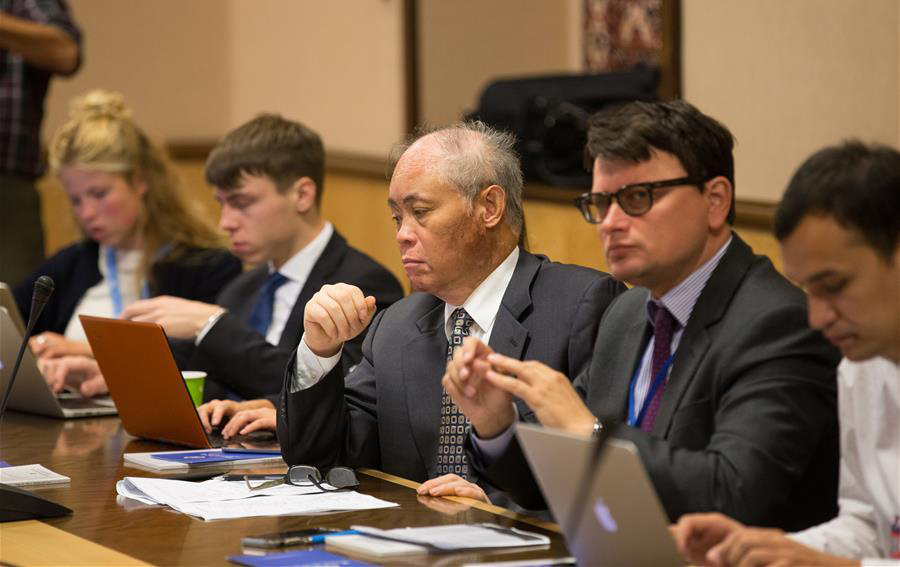Community of common destiny: Contribution of socialism with Chinese characteristics to world

Experts attend a side event titled “Building a Community of Common Destiny for Mankind and the Realization of the Right to Development” during the 36th UN Human Rights Council Session in Geneva in September. Recently, scholars hailed the concept of a community of common destiny as a great contribution that socialism with Chinese characteristics has made to the world.
At a recent forum on Marxist studies in Shanghai, scholars hailed the concept of a community of common destiny as a great contribution that socialism with Chinese characteristics has made to the world.
The community concept is a major innovation of Marxist international strategic theory based on a profound understanding of the world and the themes of the era, said Cheng Weili, a research fellow from the Shanghai Academy of Social Sciences. Problems like uneven global development have posed a stumbling block to West-led economic globalization, and globalization is taking on a series of new features, he said.
This highlights the urgency of ending the dominance of developed countries over the international system, Cheng said. The concept of a community of common destiny lays a theoretical foundation for a new form of globalization, he said.
Wang Yonggui, a professor of Marxism at Nanjing Normal University, said the proposal of building a community of common destiny aims not only to create a favorable external environment for achieving the Chinese dream of the great rejuvenation of the nation but also to push forward the construction of a fairer, more reasonable global governance system.
Unlike a West-centered model of global governance, a community of common destiny advocates mutual benefits and sharing, Wang said. It is in line with the value pursuits of socialism with Chinese characteristics and reflects China’s commitment to shouldering its responsibilities for global common development as a major country.
Gong Xiaoying, deputy director of the School of Marxism at Tongji University, cited the idea of shared development to elaborate on the internal relationship between socialism with Chinese characteristics and a community of common destiny. China has proposed five attributes of development—innovative, coordinated, green, open and shared—and of these, shared development emphasizes that development achievements should be shared by all people to ensure social fairness and justice, she said.
Shared development, a major concept that embodies the essence of socialism, can also be applied to solve global problems, including uneven development and the widening gap between the rich and the poor, Gong said. Similarly, the goal of forging a community of common destiny is to empower all countries, regardless of size or strength, to share the fruits of human progress, which conforms to their aspirations for peace, development, cooperation and progress, and reflects China’s willingness to share its reform and development results, she added.
Pang Jinju, former vice-president of Nankai University, said China could make a greater contribution by working on its own development. China has contributed more than 30 percent to world economic growth for several consecutive years. As the most populous developing country in the world, it aims to build a moderately prosperous society by 2020 and avoid the “middle-income trap,” setting a good example for other developing countries, he said.
In addition, China should continue to participate in global governance, expanding its role in economy, politics, culture and other areas, Pang said. Furthermore, given the backlash against globalization, it should take a firm position against protectionism while working together with other countries to build an open world economy to realize mutual benefits and achieve global development, he added.

 PRINT
PRINT CLOSE
CLOSE